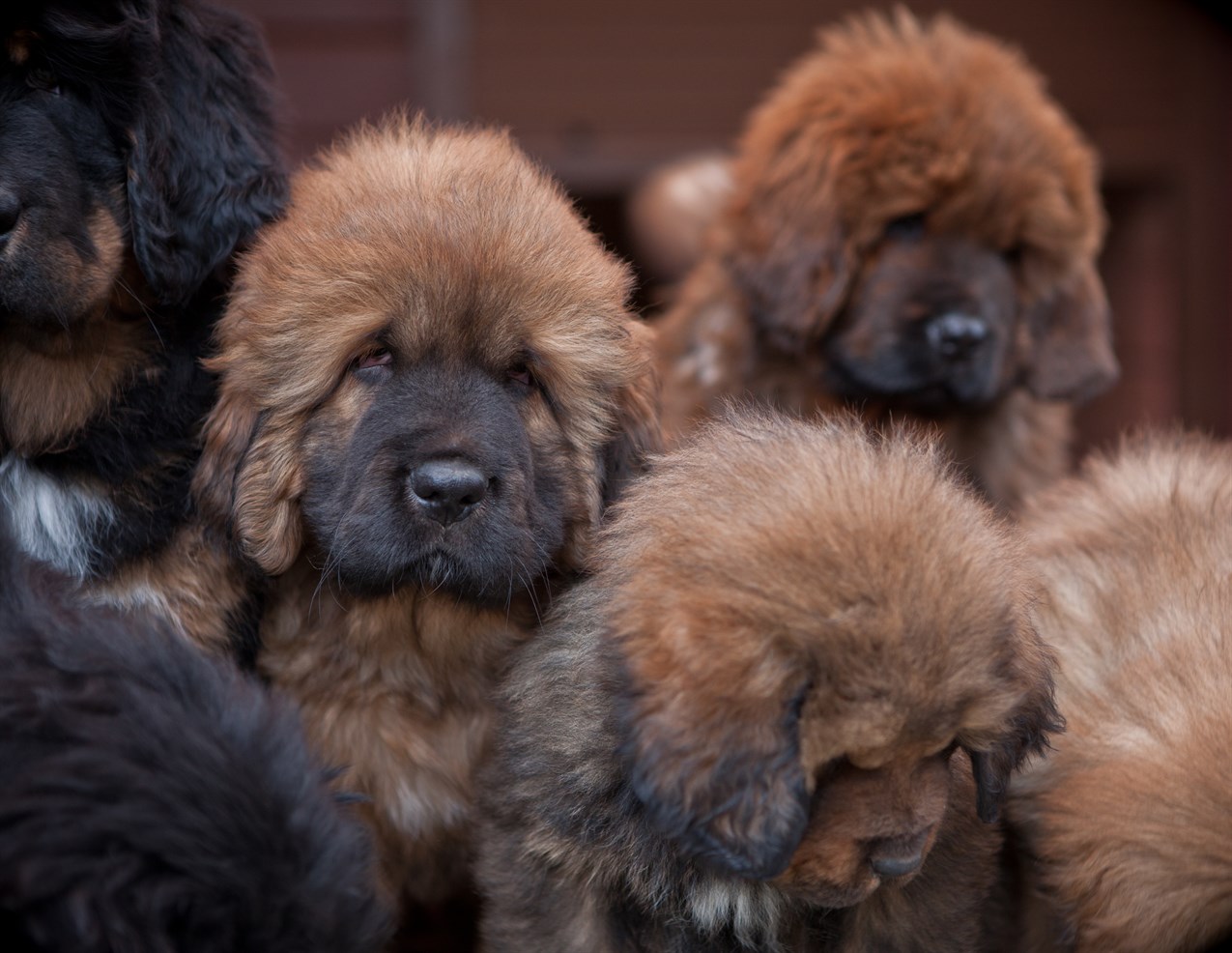Feeding Habits and Food Requirements of the Tibetan Mastiff

Feeding a Tibetan Mastiff properly is essential for their overall health and well-being. These large and powerful dogs have specific dietary needs and feeding habits that should be considered to keep them happy and healthy.
High-Quality Diet
Provide your Tibetan Mastiff with a high-quality commercial dog food formulated for large breeds. Look for options that list meat as the primary ingredient and avoid foods with excessive fillers and artificial additives.
Portion Control
Tibetan Mastiffs are prone to obesity, which can strain their joints and lead to health issues. Be mindful of portion control and avoid overfeeding. Consult with your veterinarian to determine the right amount of food for your dog's age, weight, and activity level.
Meal Frequency
Puppies require more frequent meals to support their growth. Feed them three to four times a day until they are about six months old. Adult Tibetan Mastiffs can transition to two meals a day.
Protein and Fat
Protein and fat are crucial components of their diet. Look for a dog food that provides a balanced ratio of these nutrients. Protein supports muscle development, while fat provides essential energy.
Avoid Rapid Growth
Tibetan Mastiffs are susceptible to skeletal issues if they grow too rapidly. Choose a large breed puppy food that helps maintain a steady growth rate to avoid putting excess strain on their joints.
Dietary Supplements
Consult with your veterinarian before adding any dietary supplements to your Tibetan Mastiff's diet. They may recommend supplements like glucosamine and chondroitin to support joint health.
Fresh Water
Ensure your dog has access to clean and fresh water at all times. Proper hydration is crucial for their overall health.
Be Mindful of Allergies
Some Tibetan Mastiffs may have food allergies or sensitivities. If you notice signs of digestive upset, skin issues, or allergies, consult with your veterinarian to identify potential dietary triggers.
Feeding Schedule
Establish a consistent feeding schedule for your Tibetan Mastiff. Regular meal times can help with digestion and prevent overeating.
Monitor Weight
Keep an eye on your dog's weight and body condition. Adjust their portion sizes as needed to maintain a healthy weight. Your veterinarian can help you determine the ideal body condition for your dog.
Avoid Table Scraps
Avoid feeding your Tibetan Mastiff table scraps or human food. These can lead to obesity and may contain ingredients that are harmful to dogs.
Treats and Training
Use treats in moderation for training and rewards. Choose healthy, low-calorie treats, or consider using a portion of your dog's regular food for training.
In conclusion, feeding a Tibetan Mastiff requires careful consideration of their unique dietary needs and potential health concerns. Providing a balanced and high-quality diet, controlling portion sizes, and maintaining a consistent feeding schedule are essential for their well-being. Regular consultation with your veterinarian will help ensure that your Tibetan Mastiff receives the best possible nutrition and stays in optimal health.
Tibetan Mastiff puppies for sale
- Find Tibetan Mastiff puppies for sale in ACT
- Find Tibetan Mastiff puppies for sale in NSW
- Find Tibetan Mastiff puppies for sale in NT
- Find Tibetan Mastiff puppies for sale in QLD
- Find Tibetan Mastiff puppies for sale in SA
- Find Tibetan Mastiff puppies for sale in TAS
- Find Tibetan Mastiff puppies for sale in VIC
- Find Tibetan Mastiff puppies for sale in WA